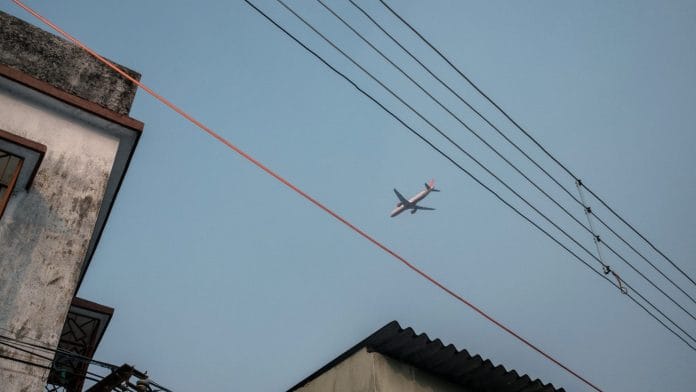New Delhi: India’s ambitious plan to privatise state-owned national carrier Air India Ltd will not be hit by Cairn Energy’s attempt to sue the airline in the US, a senior finance ministry official said Monday, adding that the energy firm is employing “pressure tactics”.
“Air India has no connection with Cairn Energy. Air India has not entered into or violated any contract with Cairn Energy. The airline’s disinvestment process will not be impacted by the legal proceedings,” the official told ThePrint on the condition of anonymity.
“As and when Air India becomes a private airline, then Cairn’s case will fall through automatically,” the official said.
The official added that the government will pursue all legal options. “Air India is yet to receive a notice. Once it receives a notice, it will have 60 days to respond,” the official said.
The ministry official also said that Cairn is trying to identify different state-owned commercial organisations as Government of India appendages and the government will counter this claim as and when required.
The move by Cairn Energy Plc to sue Air India in an attempt to recover its $1.2 billion arbitration award against the Indian government in a retrospective taxation case has raised questions around the stake sale of the national carrier.
The privatisation process was already under a shadow due to the second wave of the Covid-19 pandemic.
India had initially planned to complete the stake sale in Air India and oil major Bharat Petroleum Corp. Ltd in the first half of the financial year but the second wave of the pandemic and subsequent restrictions on movement and physical site verification has delayed the financial bids for these firms.
The ministry official said that the bids for Air India could be invited by September as the bidders had sought more time to complete the due diligence process.
The Tata Group, and SpiceJet promoter Ajay Singh are said to be two shortlisted bidders for Air India and will now present financial bids for the loss-making airline.
The budget has set a Rs 1.75 lakh crore disinvestment target for 2021-22, as against Rs 32,835 crore collected in 2020-21. Of the total target, the government has budgeted that it will get Rs 1 lakh crore from stake sale in financial institutions and Rs 75,000 crore from stake sales in other public sector firms.
Also read: Indians seen rushing for gold loans again as pandemic deepens economic distress, uncertainty
Cairn Energy claims Air India was Indian govt’s ‘alter ego’
In its filing with a US district court, Cairn Energy has sought to attach Air India’s assets claiming that the latter is the “alter ego” of the Indian government.
Sources in the Modi government have termed Cairn’s move as an “illegal enforcement claim”.
The government has engaged a legal counsel team to fight on India’s behalf and is ready to defend against any enforcement action if and when initiated by Cairn anywhere in the world, sources said.
Never-ending retrospective taxation row
The Indian government faced two consecutive setbacks over the last few months when it lost to Vodafone Plc and Cairn Energy Plc in two separate international arbitration cases relating to a retrospective levy of tax on capital gains.
However, maintaining that the judgments question the sovereign right of the Indian government to impose a tax, the government has filed appeals against both the judgments.
Sources said the Modi government is confident of winning its appeal in The Hague. Cairn did not pay a single rupee tax anywhere in the world in respect of the impugned transactions. Cairn had also lost its appeal before the income tax tribunal, they pointed out.
After losing a case against Vodafone Plc in the Indian Supreme Court, India had retrospectively changed its tax laws in 2012 to levy a capital gains tax on transactions done outside India’s borders but for assets that were situated in India. This made Vodafone’s $11.2 billion purchase of Hutchison Essar in 2007 taxable in India.
Similarly, it also sought to tax a transaction between Cairn Energy and Cairn India. Since then, the government has been engaged in prolonged legal battles with the two global firms.
Also read: Cost of vaccination will hurt already creaking budgets of Indian states






